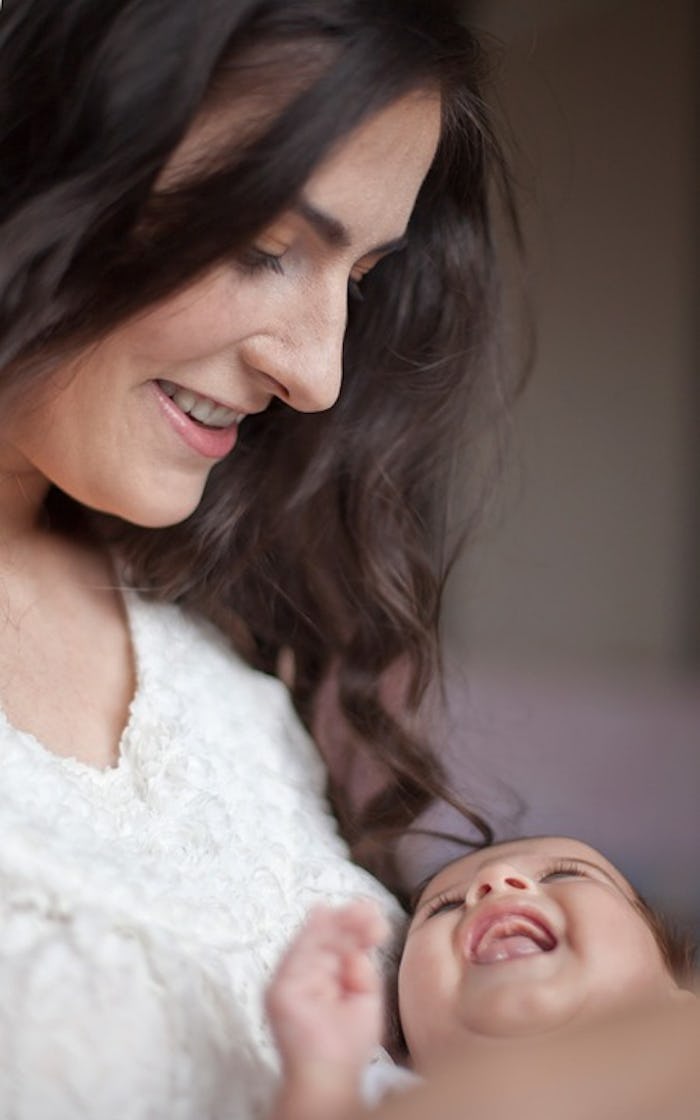Let's face it — resisting the urge to hold your child is almost impossible. Yes, if you're feeling touched out or just need a free hand to wipe your ass after using the bathroom, then it may be easy to pass them off to someone else's arms. But holding your baby provides an amazing feeling for all parties involved. In fact, what happens to your baby's body when you hold them is something incredible that every parent should know about.
According to Health Guidance, touch is your baby's primary sense when they're born, and although some babies desire higher levels of touch depending on their temperament, it's important for babies of all personalities and ages to get enough sensory stimulation. Since their sight and hearing takes longer to develop fully, lavishing them with touch is one of the earliest ways they can feel loved. Aside from the scientific and physical standpoint, there are some powerful emotional aspects of holding a baby that are actually crucial for the development of your baby. Increased levels of affection benefits your baby physically, emotionally, and cognitively, making a strong case for extra snuggles whenever the opportunity strikes.
First, the physical. A study from the National Institutes of Health noted that babies who had higher levels of sensory stimulation through touch gained weight better than babies who were fed the same amount of food but didn't receive the same levels of physical touch. Similarly, the study found that babies who received even ten extra minutes of "handling" per day saw significant decrease in regurgitation and colic. The Dr. Sears website also noted that touch stimulates a baby's growth producing hormones and makes their cells more responsive to them. So touching your baby via massage or simply holding them is beneficial on a cellular level as well.
Then there are the emotional benefits. Scientific American noted that skin-to-skin contact helps calm babies, making them cry less and sleep better. The same article noted that babies who don't receive enough physical touch are at higher risk for behavioral, developmental, and social disorders as they get older.
In extreme cases — like in orphanages or homes with absent parents — a piece from The New York Times noted that babies showed slowed growth, inability to mature emotionally, and can even die from a literal lack of touch.
Although most babies are born into homes where touch is given in abundance, these points make a strong case for being generous with your snuggles and never worrying about spoiling your baby through holding them too much. Their physical growth and emotional health depends on it.
